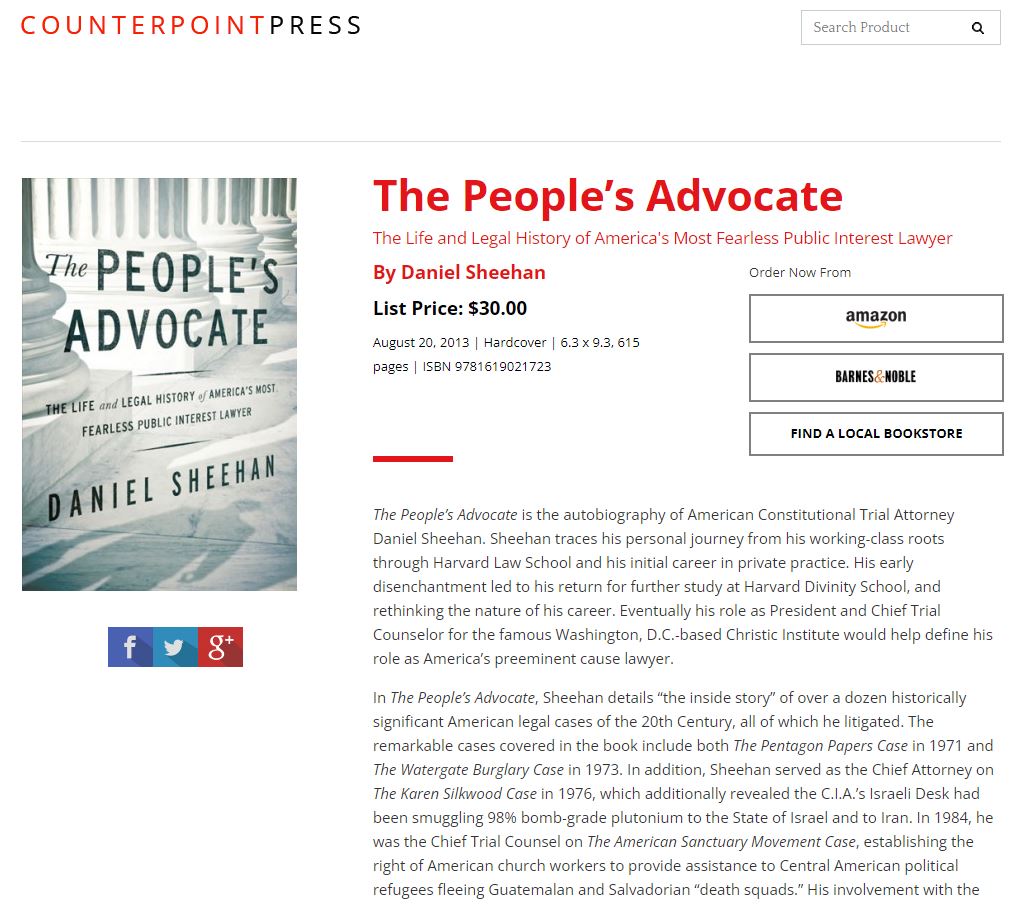The following is Daniel Sheehan talking about C. Crane Brinton (Harvard – McLean Professor of Ancient and Modern History) last lecture on ‘The Single Most Important Idea in Intellectual (Western) History” in December 1967,
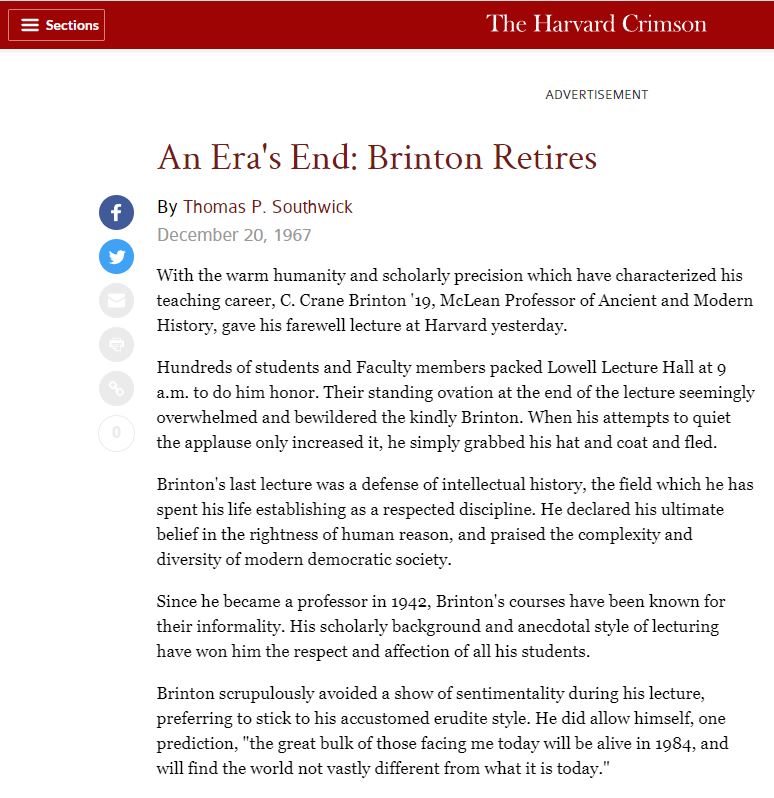
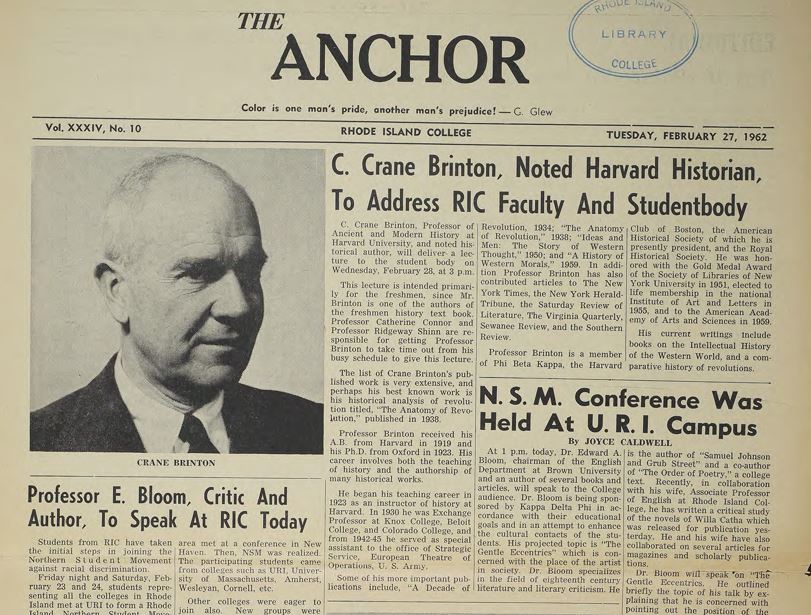
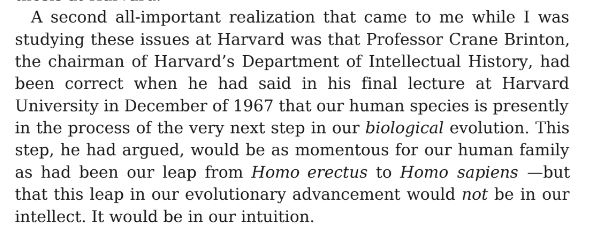
A New Religion*
*See C. Crane’s lecture notes below.
2013 Dec 11th
DANIEL SHEEHAN in Walnut Creek – “The People’s Advocate” – The Life and Legal History of America’s Most Fearless Public Interest Lawyer – danielpsheehan.com
Crane Brinton
Last Lecture
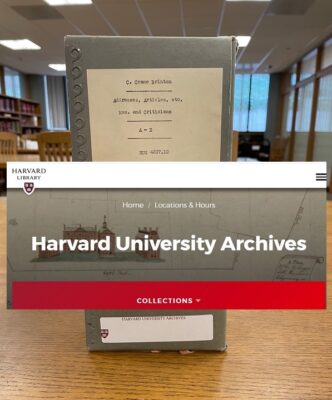
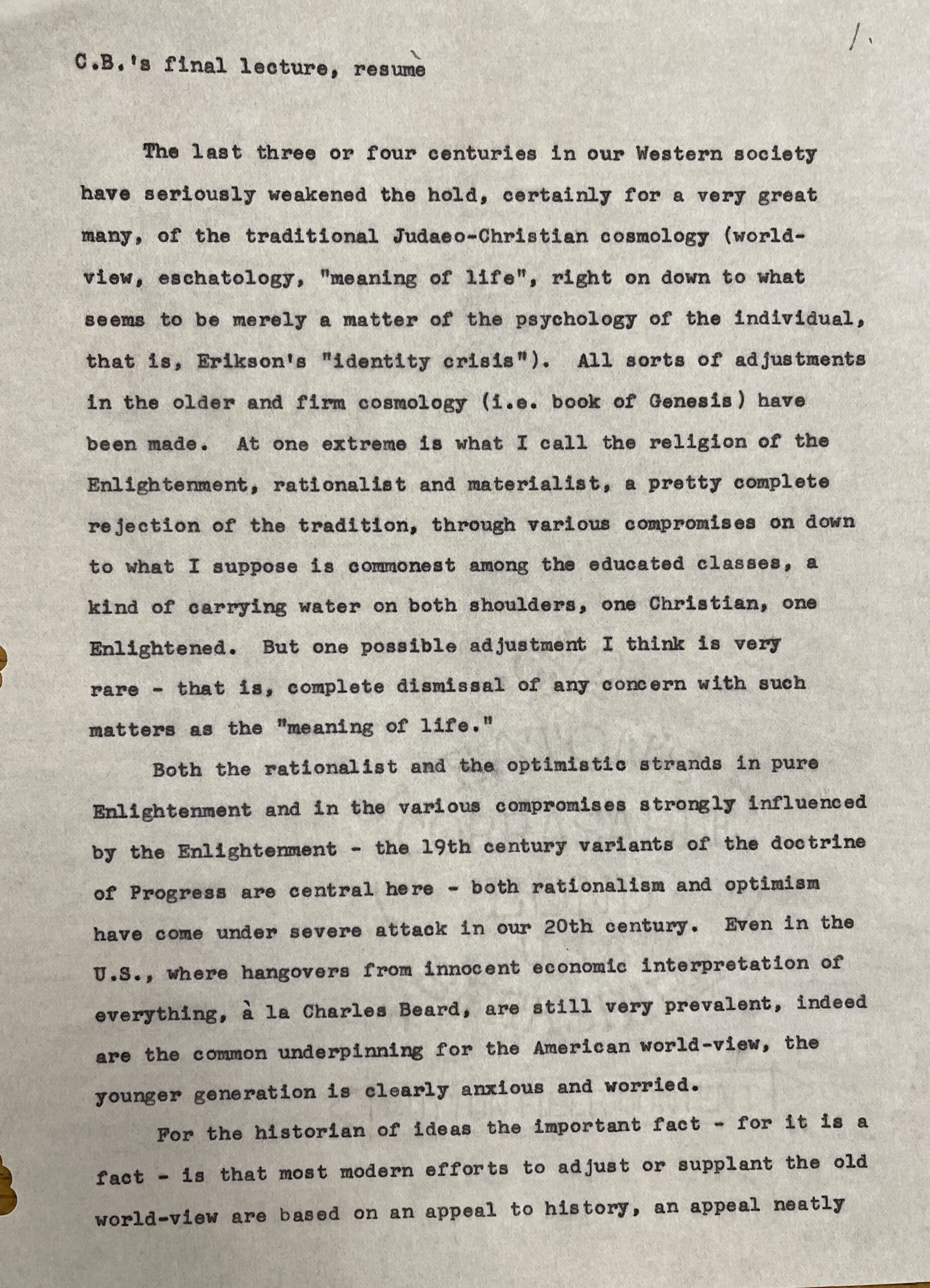
C.B.’s final lecture, resume
The last three or four centuries in our Western society hare seriously weakened the hold# certainly for a very great many, of the traditional Judaeo-Christian cosmology (worldview, eschatology, “meaning of life”, right on down to what seems to be merely a matter of the psychology of the individual, that is, Erikson’s “identity crisis”). All sorts of adjustments in the older and firm cosmology (i.e. book of Genesis) have been made. At one extreme is what X call the religion of the Enlightenment, rationalist and materialist, a pretty complete rejection of the tradition, through various compromises on down to what I suppose is commonest among the educated classes, a kind of carrying water on both shoulders, one Christian, one Enlightened. But one possible adjustment I think is very rare – that is, complete dismissal of any concern with such matters as the “meaning of life.
Both the rationalist and the optimistic strands in pure Enlightenment and in the various compromises strongly influenced by the Enlightenment – the 19th century variants of the doctrine of Progress are central here – both rationalism and optimism have come under severe attack in our 20th century. Even in the U.S.,where hangovers from innocent economic interpretation of everything, a la Charles Beard, are still very prevalent, indeed are the common underpinning for the American world-view, the younger generation is clearly anxious and worried.
For the historian of ideas the important fact – for it is a fact – is that most modern efforts to adjust or supplant the old world-view are based on an appeal to history, an appeal neatly summarised in the title of a book by the Enlightened Ausralian anthropologist, V. Gordan Childs, “Man Makes Himself.” If man has made himself what he now is, the obvious clues – the only clues – to what he might make of himself in the future can be found in the study of the past. Hence the great preoccumpation of our time with what I call the literature of “Whither Mankind”, or more academically put, the philosophy of history.
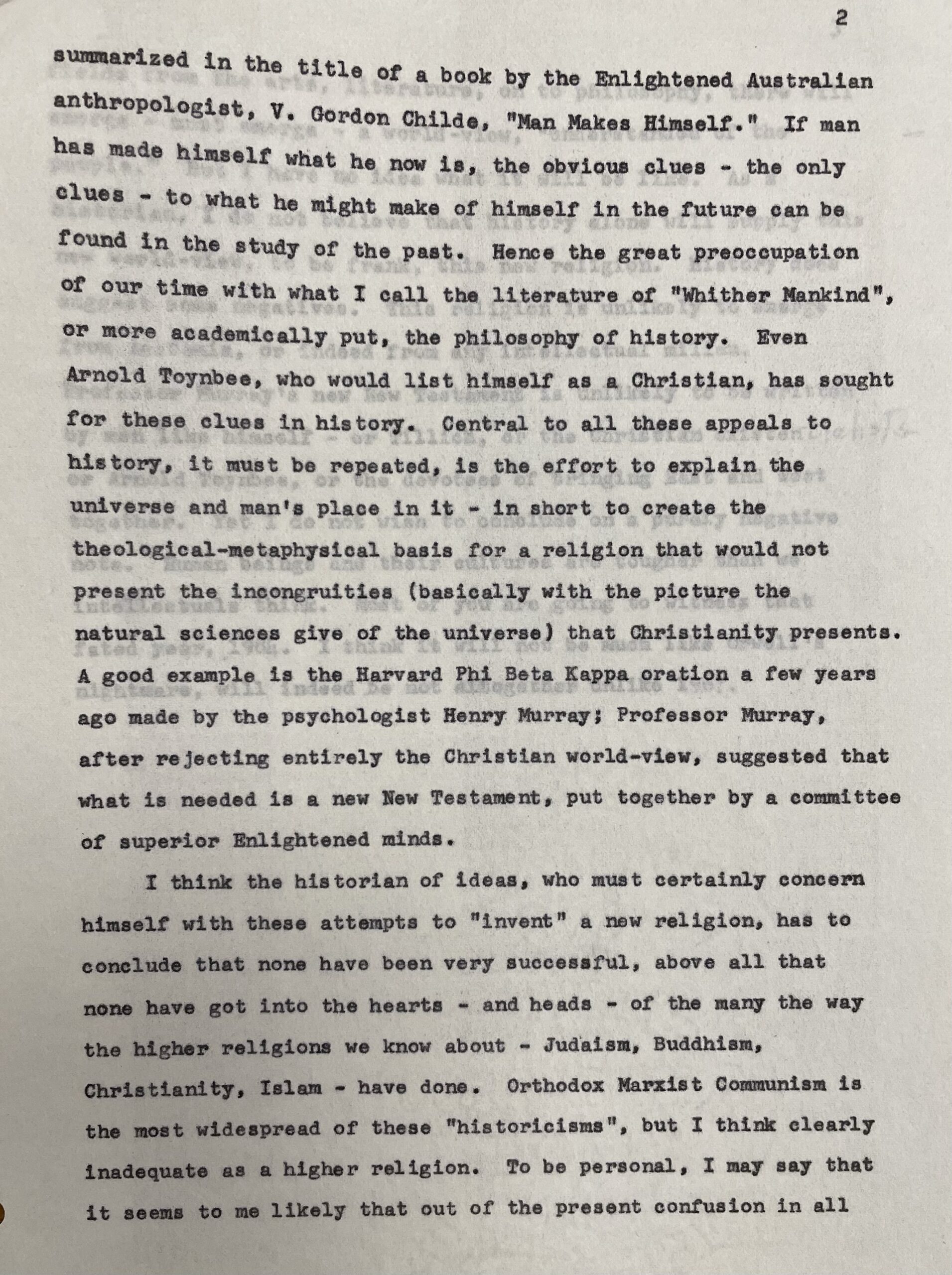
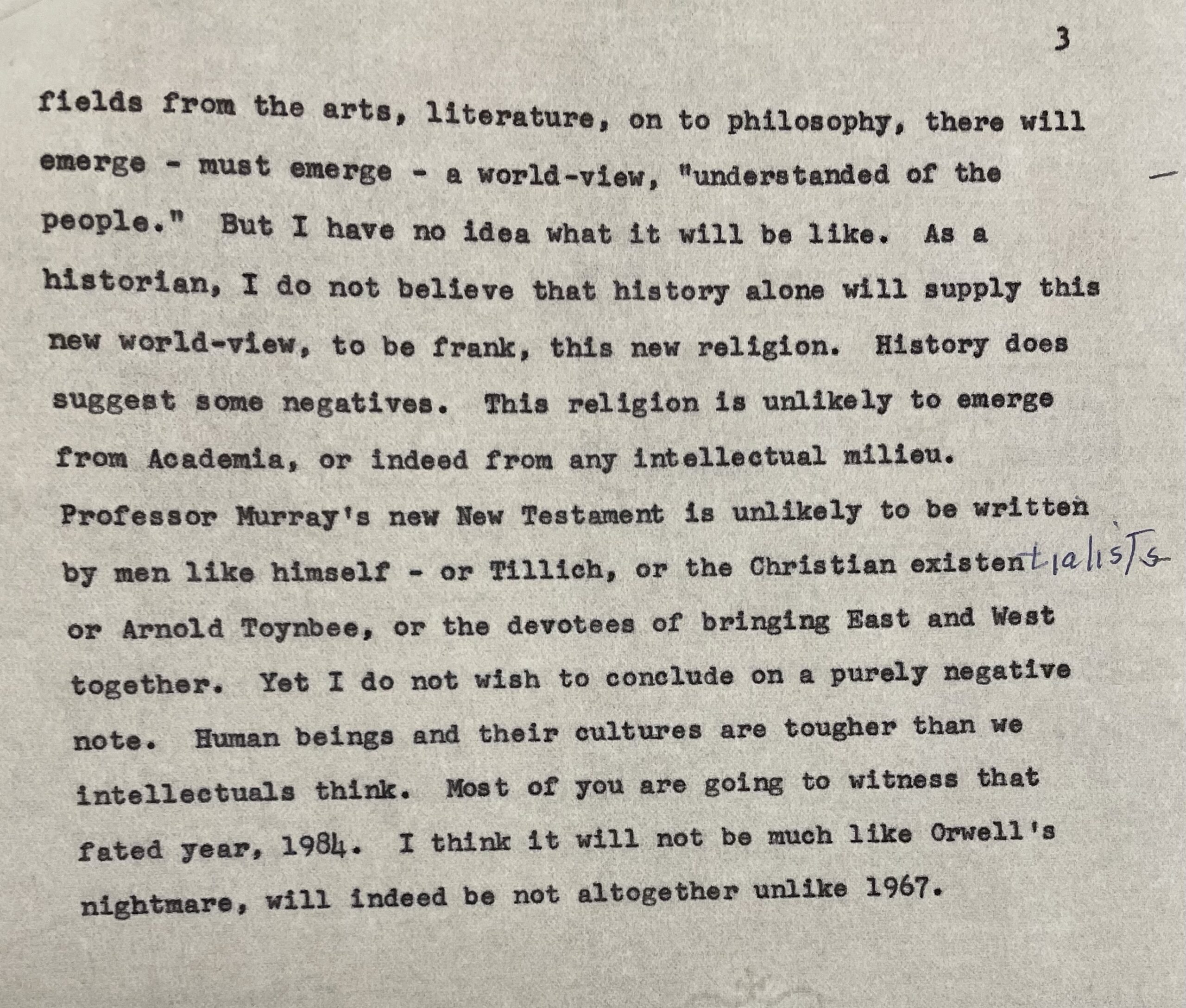
fields from the arts, literature, on to philosophy, there will emerge – must emerge – a world-view, “understated of the people.” But I have no idea what it will be like. As a historian, I do not believe that history alone will supply this new world-view, to be frank, this new religion. History does suggest some negatives. This religion is unlikely to emerge from Academia, or indeed from any intellectual milieu. Professor Murray’s new New Testament is unlikely to be written by men like himself – or Tillich, or the Christian existentialists or Arnold Toynbee, or the devotees of bringing East and West together. Yet I do not wish to conclude on a purely negative note. Human beings and their cultures are tougher than we intellectuals think. Most of you are going to witness that fated year, 1984 I think it will not be much like Orwell’s nightmare, will indeed be not altogether unlike 1967.
PDF Copy of lecture
